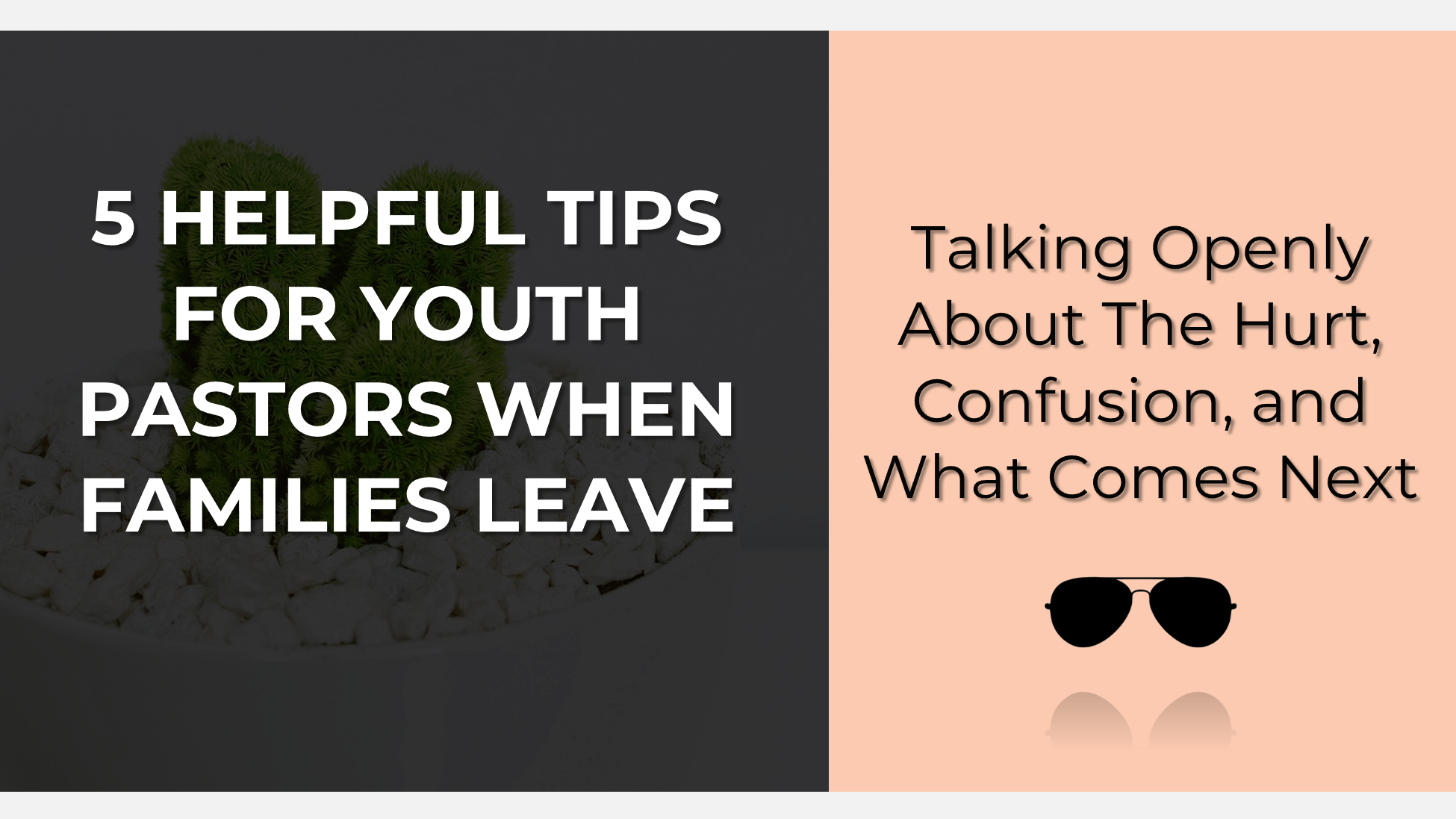
5 Helpful Tips for Youth Pastors When Families Leave
Oh man, this is so real and so painful. The students in our youth group really become our kids. I tell people
During the 2020 presidential election campaign, there was a new face that managed to achieve relative prominence in the world of politics almost out of nowhere. Andrew Yang, an entrepreneur, burst onto the scene as a (super) long shot to win the Democratic nomination. He even managed to make it onto the debate stage on a number of occasions. His platform?
UBI.
It was essentially his whole thing. I’m not a political expert (and this blog post is not a political endorsement), but the Universal Basic Income idea he was proposing was that the government give every legal-aged American citizen $1000/month. His thought was that this “freedom dividend” would help average Americans pay for childcare, offset the lost wages from the automation of jobs, and spend more money out in their communities, thereby boosting the economy.
We all love free money. But, understandably, a lot of Americans had a few pushbacks against Yang’s ideas. Two of them stand out to me:
Why give free money to people who don’t deserve it?
And, maybe the most obvious and pressing question:
Where’s it coming from?
Regardless of what you think about the Democratic party, Andrew Yang, or Universal Basic Income, there’s something magnetic about the idea of continually investing in a group of people or even a single person as a means of solving (nearly) all problems within that group. Whether UBI is a good political solution is perfectly debatable. But don’t you think there’s something very gospel-centric about solving problems by investing in people? Isn’t that exactly what Jesus has done for us in the gospel? When we were at our worst, Jesus’ solution was to invest in us. Even when we’re at our worst now—as believers—Jesus’ solution is to invest in us.
He doesn’t shame.
He doesn’t scold.
He doesn’t withhold.
He gives us even more of what we don’t deserve, grace, and says “use this to invest in your local community, and see how your community is better for it.”
It’s a gift steadily offered to us regardless of our merit simply because we are citizens of a certain kingdom. And through experiencing God’s steady, dependable, confounding grace, we’re changed. That’s how the gospel works. That’s how Jesus transforms us. And that’s how we influence students toward their own transformation in Christ.
So when those 6th grade boys WILL NOT SHUT UP in the front row during your message…
When that 9th grade girl stirs up drama that messes with the culture of your youth group AGAIN…
When that 11th grader continually makes TERRIBLE choices over and over and over…
We don’t shame.
We don’t scold.
We don’t withhold.
We invest. We show grace. And, back to the big question…
Where’s it coming from?
It comes out of the overflow of the freedom dividend Jesus has given and continues to give to us—not just month by month…but day by day…moment by moment.
Again, the point of this blog post isn’t to change your political ideology or even to endorse one over another. I just think it’s interesting that, with a gospel lens, gospel parallels can be drawn even from political ideologies that have nothing to do with Jesus, and that those gospel parallels can then help us be better youth workers.
I wonder what else could help you be a better youth worker. If you made the decision every morning to throw on the G Shades before you start your day, what else might the Holy Spirit reveal to you that helps you shepherd the next generation more effectively?

Oh man, this is so real and so painful. The students in our youth group really become our kids. I tell people

Everyone loves games. Games can start connections with your group. As youth pastors, we want to make the time to

Most of us don’t get into youth ministry for the overwhelmingly generous paycheck. We love Jesus, we love the next